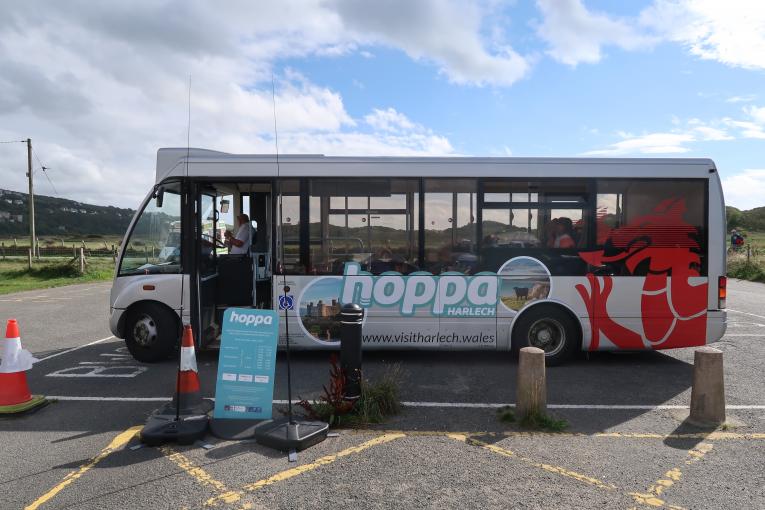
Do you remember our project Hoppa Harlech which we ran over the summer holidays last year? This interesting project was trying to help reduce traffic in the upper part of Harlech but also trying to encourage people to stay in the area longer and spend.
Harlech Castle is one of the town’s main attractions, and as being honoured with the world’s steepest hill would suggest, there’s a very steep hill to get up to it! Because of this many people drive up and try to park in Upper Harlech. This leads to big problems with parking as there isn’t much available in the upper part of the town. If visitors can’t find a space to park in Upper Harlech they tend to leave straight away.
To try and help this situation Arloesi Gwynedd Wledig organised a bus to run between the large car park down in Lower Harlech up to the Castle in Upper Harlech every half an hour, everyday during the summer holidays. The project was so successful that the community are running it themselves this year!
Harlech councillor Freya Bentham explains how the project has helped.
“The pilot project last year was incredibly helpful, without it we wouldn’t have known how successful the Hoppa would have been and if it was worth the investment. Arloesi Gwynedd Wledig also conducted a survey of visitors to Harlech as part of the project, and this data has helped us prove that the Hoppa encouraged more people to spend money whilst visiting Upper Harlech and stay there longer, which can only be a good thing for the businesses of Upper Harlech.”
Through our support the group in Harlech now have the confidence to go ahead with the Hoppa themselves this year. They’ve learnt what worked and what didn’t, which proves the importance of piloting. In essence, AGW’s purpose it to pilot, learn and share, and this project it a perfect example of it at work.
This project has received funding through the Welsh Government Rural Communities - Rural Development Programme 2014-2020, which is funded by the European Agricultural Fund for Rural Development and the Welsh Government. It’s also part funded by the Nuclear Decommissioning Authority (NDA) and Gwynedd Council.
